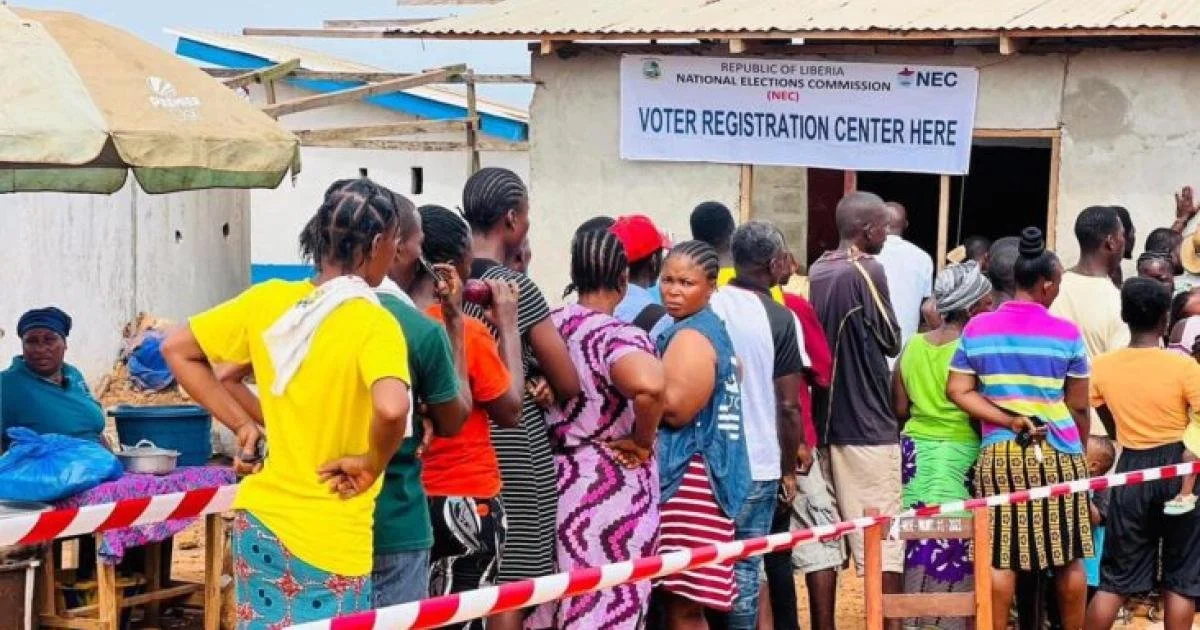On 30 August, news of a coup d'état in Gabon sent shockwaves across the region, just over a month after a similar coup in Niger. West and Central Africa are currently experiencing a troubling surge in coups, challenging the democratic progress made over recent decades.
In the past three years, seven African countries have experienced coups, with five of them located in West Africa: Mali, Burkina Faso, Guinea, Niger, and Sierra Leone. While Sierra Leone is not officially classified as having experienced a traditional coup, it is essential to recognize the recent events there as a form of coup – an electoral coup d’état. This occurred due to perceived statistical inconsistencies in the election results, leading to violence and a seizure of power.
Next door to Sierra Leone, Liberia remains one of the world's poorest nations, even after 176 years of independence. Over half the population lives below the national poverty line, and the country ranks 175 out of 189 countries on the UNDP's 2022 Human Development Index. With a hunger rate of 32.4, Liberia falls into the category of ‘severe hunger,’ ranking 113/121. And despite being known as the "sweet land of liberty," Liberia faces challenges in translating personal freedoms into prosperity – it ranks 138th out of 167 countries on the Legatum Prosperity Index, with poor standings in education, health, infrastructure, and market access.
Liberia has a tumultuous history marked by uprisings, coups, and civil wars. Despite celebrating twenty years of fragile peace in August 2023, many Liberians fear chaos during the election, given the disillusionment among the majority of its youthful population. Rising youth unemployment and the proliferation of drugs in urban areas are concerning factors contributing to the anticipation of election-related violence.
With over 2.4 million registered voters for the October polls, there is widespread distrust in the National Elections Commission (NEC) ability to conduct a free and fair election. Primary concerns include the absence of opposition-nominated commissioners, which was a confidence-building precedent set by the administration of former President Ellen Johnson Sirleaf. A continuation of manual voting despite implementation of biometric voter registration is also undermining voters’ confidence. Although the voter register has been cleaned of duplicate entries, it has not been made public. Challenges such as difficult road access for delivering sensitive materials and limited voter education further erode confidence in the process. And relatedly, NEC’s recent call to political parties to ensure that they, themselves, educate their supporters in order to avoid high numbers of invalid votes did not do much to allay fears.
What is more: violence has already erupted during the campaign, including physical attacks and verbal misinformation against the political opposition. Limited funding for election security has compounded these legitimate concerns about electoral violence. While the government and opposition have committed to a peaceful process, the 2023 general elections will be Liberia’s first since the departure of the United Nations Mission in Liberia (UNMIL), which has been in the country since 2018; this will also be the first post-war election in which Liberia provides for its own budget. This comes amidst perceived corruption in the system, one in which three senior government officials were sanctioned by the U.S. government in 2022.
The Liberian context thus requires that ECOWAS and the AU act outside of the box for the upcoming elections within the framework of a peace and security agenda. If violence continues up to the elections, there is a high chance of conflict in a country that has never had genuine healing or reconciliation after a stalled truth and reconciliation process.
Tribal and divisive rhetoric could be the fuel that ignites Liberia into war or even genocide. The international community simply cannot allow this to happen.
While several opposition parties have agreed to cooperate to safeguard the vote, this alone is not enough. To prevent a crisis and bolster confidence in the electoral process, ECOWAS and the AU should provide technical information technology experts and systems analysts to audit the biometric voter register, as well as help during result collation, tabulation, and transmission. ECOWAS should strengthen and expand the ECOWAS Advisory Training Team (EATT) already in Liberia – comprising troops from Nigeria, Ghana, and Sierra Leone – to ensure that they provide training for the Liberian Armed Forces (AFL) to support the Joint Security Task Force under the leadership of the Liberia National Police. ECOWAS and AU should additionally provide support to transport electoral materials to remote areas with poor road conditions. The "wait and see" approach that has contributed to recent coups must not be repeated in Liberia.
Liberia stands at a critical juncture. The country’s future stability and latent prosperity are hanging in the balance. Urgent, targeted intervention from ECOWAS and the AU is not just a matter of choice, it is a moral imperative to prevent a potential catastrophe.
Liberia's people deserve a chance at peaceful and credible elections. And this will only be achieved with robust out of the box international support. The time to act is today.
Rev. Sara Beysolow Nyanti is a former Assistant Secretary General of the United Nations and served in previous posts in Nigeria, The Gambia, South Sudan, Nepal, and Yemen. She is a presidential candidate in Liberia’s October election and is leading opposition voices inside the country to safeguard the votes of each and every Liberian participating in the election.
DISCLAIMER: The views expressed in this publication do not necessarily reflect the opinions of Vanguard Africa, the Vanguard Africa Foundation, or its staff.

